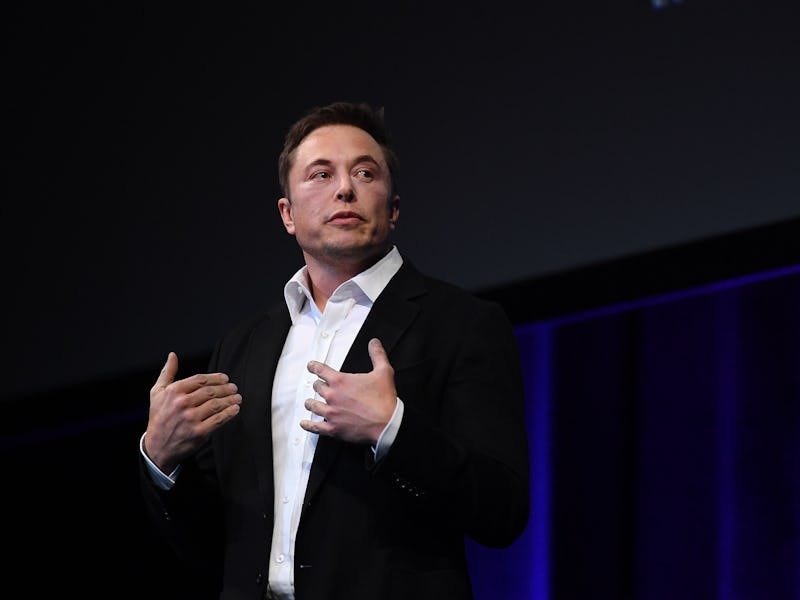Elon Musk Still Isn't Answering The Most Important Questions About Mars
There's some life or death stuff to sort out.

Now more than ever, it’s important to hold onto a modicum of hope that the future won’t be a flaming trash heap. So when Elon Musk announced earlier today that SpaceX plans to start sending humans to Mars by 2024, the world cheered. But before we get anywhere near the moon or Mars, some serious unanswered questions remain.
At this point, Musk is infamous for his grand ambition to “make humans an interplanetary species.” In his speech this afternoon at the International Astronautical Federation (IAC), the SpaceX founder outlined some steps to getting there, including a moon base, uncrewed missions to Mars in 2022, and eventually, crewed missions to the Red Planet.
“It’s 2017, we should have a lunar base by now,” he said at the conference. “What the hell is going on?”
While this is all aspirational and exciting, there are some grave lingering concerns. For one thing, Musk has yet to discuss in detail how he plans to protect humans from the dangerous levels of radiation they’ll be exposed to on the journey to Mars.
A one-way trip is about 260 days, and is a considerably farther distance than any astronaut has previously traveled. The longer passengers are exposed to galactic cosmic rays during spaceflight, the more at-risk they could be for developing radiation-based cancer. In fact, a study published in Scientific Reports back in June suggests the risk of developing cancer due to radiation exposure on the way to Mars could be two times greater than what scientists previously thought.
In the past, Musk has dismissed questions about radiation, so it’s a small improvement that this time, he revealed the SpaceX rocket that will bring humans to Mars will have a designated shelter for radiation from solar storms.
“There’s going to be some risk of radiation, but it’s not deadly,” he said at last year’s IAC in Guadalajara, Mexico. “There will be some slightly increased risk of cancer, but I think it’s relatively minor…the radiation thing is often brought up, but I think it’s not too big of a deal.” SpaceX did not respond to Inverse’s inquiry about how the company plans to protect future passengers from radiation to and from Mars.
Hopefully, Musk will sort these issues out before shipping people off to the Red Planet, where they will undoubtedly be exposed to even more dangerous radiation — after all, Mars’ thin atmosphere won’t do a great job shielding any potential settlers. For now, maybe Musk should focus on making some of his timelines a little more realistic.
“SpaceX is in the business of making the impossible, possible,” former SpaceX spokesperson Phillip Larson tells Inverse. “Here’s my rule for judging Elon Musk: he may not get the ‘exactly when’ right. But he hasn’t been wrong about ‘we can do this.’”
To get to Mars, NASA is researching a high-tech bear den for astronaut “hibernation.” Check out this video to find out more.